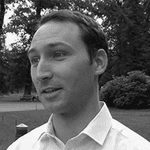Event Recording:
The first discussion in the Oxford Net Zero Series, hosted by the Oxford Martin School, hones in on the fundamental motivation of the research programme: ‘Why net zero?’.
Join the Oxford Net Zero Initiative’s Research Director, Professor Sam Fankhauser; Director, Professor Myles Allen; Net Zero Policy Engagement Fellow, Kaya Axelsson as they discuss with the Chair, Executive Director. Dr Steve Smith, the meaning of the word ‘net’ in net zero, reviewing what is needed to mitigate global warming, as and before we fully phase out activities that generate greenhouse gas emissions.
The discussion will explore the framing opportunities and challenges that the term ‘net-zero’ offers for science, policy, and advocacy informing effective climate action, as well as the innovation required at scale to achieve the global goal.

Professor Myles Allen
Lead Researcher, Oxford Martin Programme on the Post Carbon Transition
Recently described as "the physicist behind net zero," Myles Allen developed the methods used by the Intergovernmental Panel on Climate Change (IPCC) in 2001 to quantify the size of human influence on observed and projected changes in global temperature. He founded the climateprediction.net project, enabling members of the public to volunteer computing resources to run the world's largest climate modeling experiments, and in 2003 he proposed how probabilities could be used to assign responsibility for individual extreme weather events.
In 2010 he was awarded the Appleton Medal and Prize from the Institute of Physics "for his important contributions to the detection and attribution of human influence on climate and quantifying uncertainty in climate predictions." At a conference in 2005, Allen first proposed the concept of a global carbon budget: the idea that peak warming is determined by the total amount of carbon dioxide we emit into the atmosphere before emissions are reduced to net zero, not the amount we emit in any given year or the eventual long-term atmospheric concentration.
He has been working on the implications for climate policy ever since, most recently as coordinating lead author for the 2018 IPCC Special Report on 1.5 degrees, and has long been a proponent of fossil fuel producers taking responsibility for cleaning up after the products they sell, rather than placing the onus on relatively powerless consumers: https://go.ted.com/mylesallen. He is a Professor of Geosystem Science in the School of Geography and the Environment and the Department of Physics, University of Oxford, a Fellow of Linacre College and Director of the Oxford Net Zero Initiative.

Kaya Axelsson
Net Zero Policy Engagement Fellow
Kaya Axelsson works as the net zero policy engagement fellow at the University of Oxford, jointly appointed by the Smith School of Enterprise and the Environment and the Environmental Change Institute. Kaya is currently working with the High Level Climate Champions team as a strategic Advisor to the youth fellowship of the Race to Zero campaign.
From 2019-2020 Kaya served as Vice-President of the Oxford University Student Union where she successfully advocated for the university to write a new sustainability strategy with net zero carbon and biodiversity net gain targets. In this role Kaya also negotiated a motion on net zero engagement and fossil fuel divestment across Oxford’s endowment.
As a climate activist from the Pacific Northwest Kaya was involved in grassroots blockades to prevent the expansion of fossil fuel infrastructure through native lands. These experiences led her to apply to a masters at Oxford to map the energy system more widely and seek a ‘seat at the table’ for young activists in accelerating the post-carbon transition. Kaya now holds an MPhil in Comparative Government from the University of Oxford, earning distinction for her thesis on the success of politically unlikely Renewable Energy Coalitions. Kaya has worked for over 10 years in nonprofits and political campaigns for social and environmental justice.
Kaya is guided by the constant reminder that our actions in climate advocacy, whether through reform-based engagement or climate direct action, must measure against those losing their lives and livelihoods to the climate crisis. She consults regularly to support organizations seeking to adopt more sustainable and inclusive systems, and is currently helping to convene dialogues between young climate entrepreneurs and researchers, with high-level industry leaders to drive more ambition in the global Race to Zero.

Professor Sam Fankhauser
Director, Grantham Research Institute on Climate Change and the Environment
Sam Fankhauser will join Oxford Net Zero in spring 2021 as Professor of Climate Change Economics and Policy, based at the Smith School of Enterprise and the Environment. Sam is currently Director of the Grantham Research Institute on Climate Change and the Environment at the London School of Economics. As part of this role, he also directs the Centre for Climate Change Economics and Policy (CCCEP) and the Place-based Climate Action Network (PCAN), which are both funded by the UK Economic and Social Research Council (ESRC).
Outside academia, Sam is a Non-Executive Director of CDC Group, the UK’s development finance institution, and an Associate Director at economics consultancy Vivid Economics. He was an inaugural member of the UK Committee on Climate Change, on which he served from 2008 to 2016.
Before joining LSE, Sam worked at the European Bank for Reconstruction and Development (EBRD), the World Bank and the Global Environment Facility. He has studied economics at the University of Berne (Switzerland), the London School of Economics and University College London.

Dr Steve Smith
Executive Director, Oxford Net Zero
Dr Steve Smith joins the Smith School of Enterprise and the Environment from the UK Department for Business, Energy and Industrial Strategy (BEIS) where he co-led the Climate Science Team for two years. He played a key role in the legislation of the Net Zero emissions target last year, and on developing the Government's approach to greenhouse gas removal. As well as advising ministers and policy teams he oversaw several areas of climate research, including the Met Office Hadley Centre Climate Programme, the Greenhouse Gas Removal Programme co-funded with UKRI, and understanding of carbon sources and sinks on land for the UK emissions inventory.
Before joining BEIS, Steve was Head of Science at the Committee on Climate Change. There he was involved in setting the UK's 2050 target and carbon budgets, as well as starting up the committee's work on climate adaptation. He gained a PhD in atmospheric physics from Imperial College London after studying Physics at Oxford. He is a fellow of the Royal Meteorological Society and of the Cambridge Centre for Science and Policy.
Keep in touch
If you found this page useful, sign up to our monthly digest of the latest news and events
Subscribe